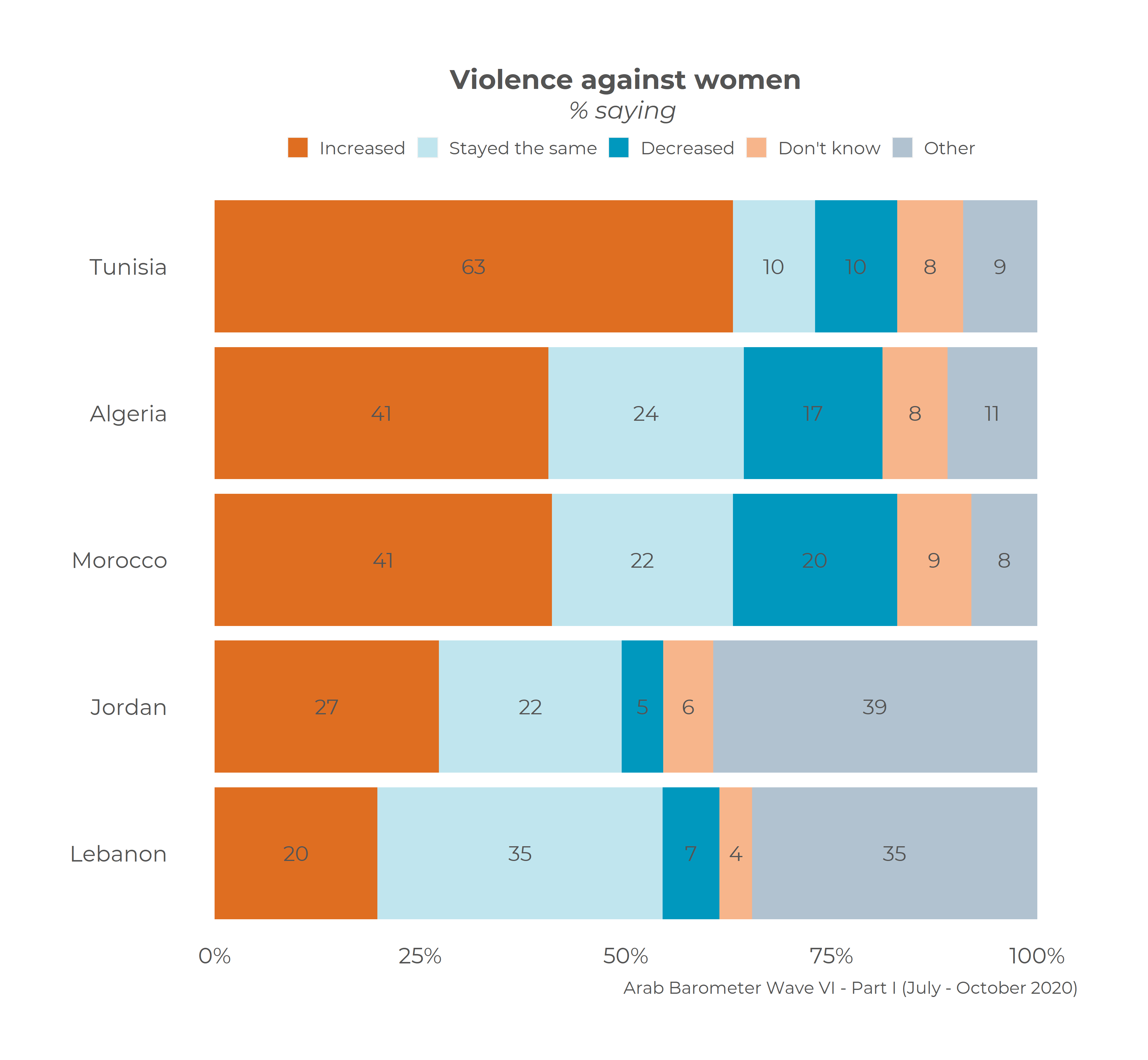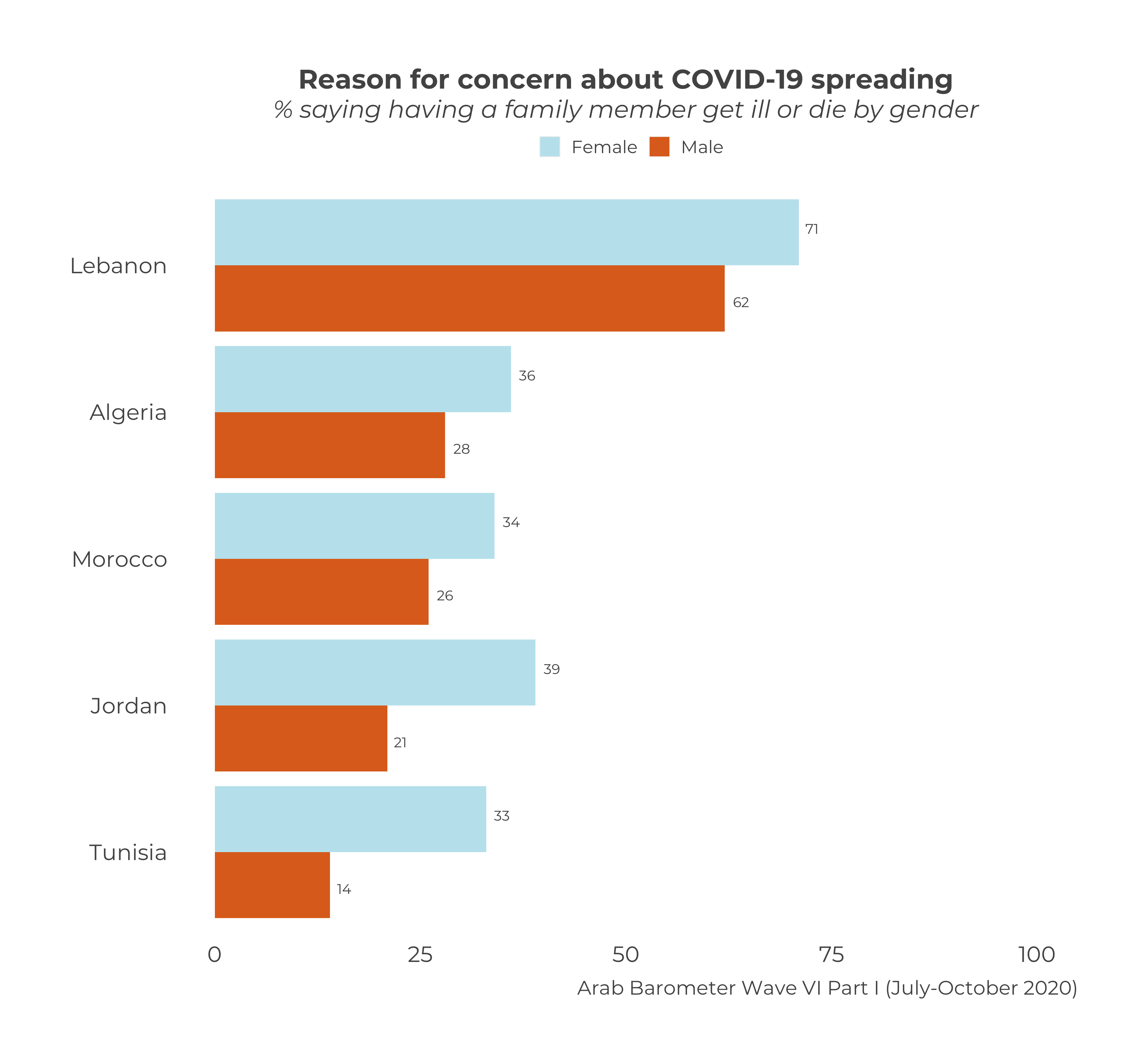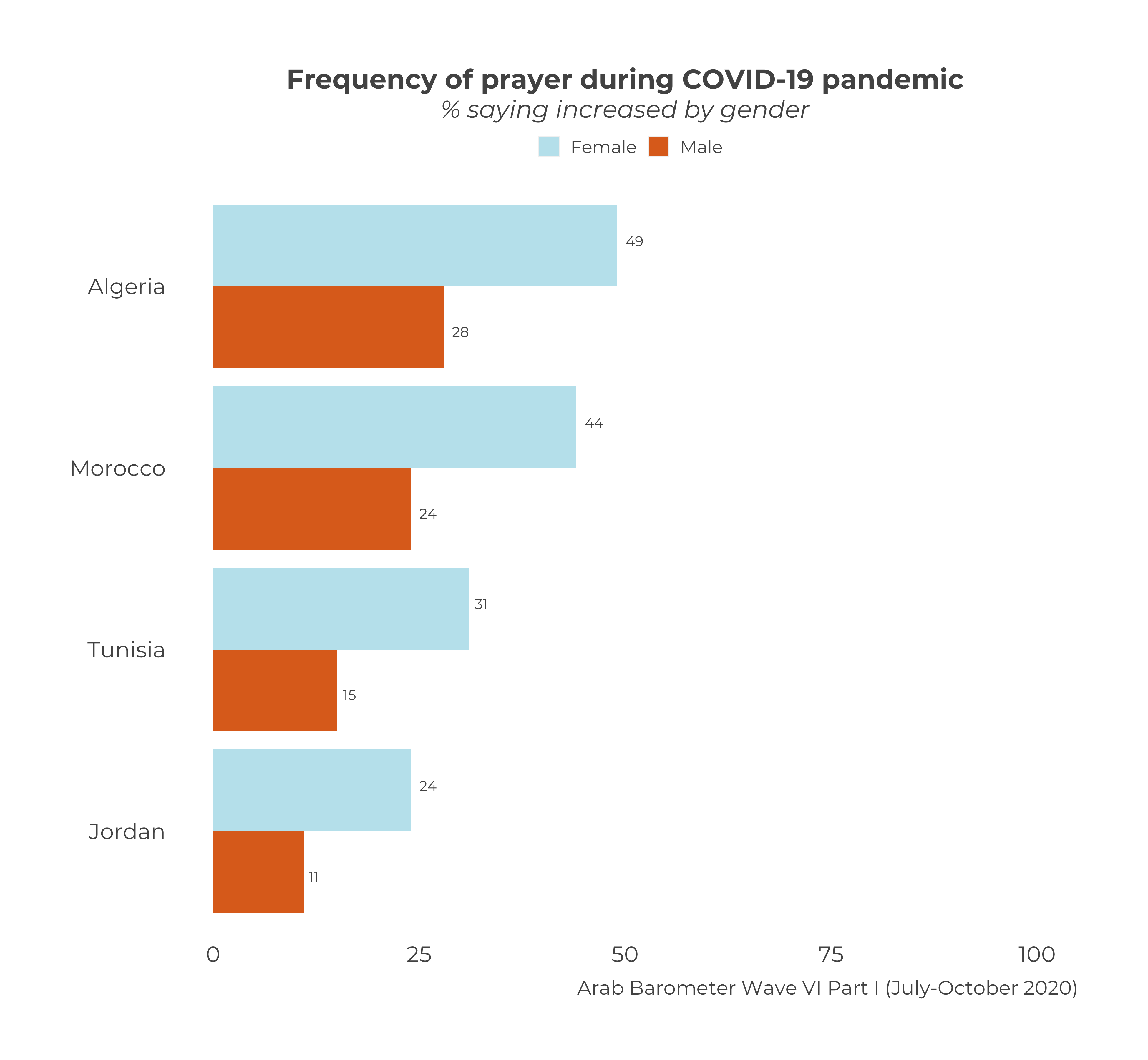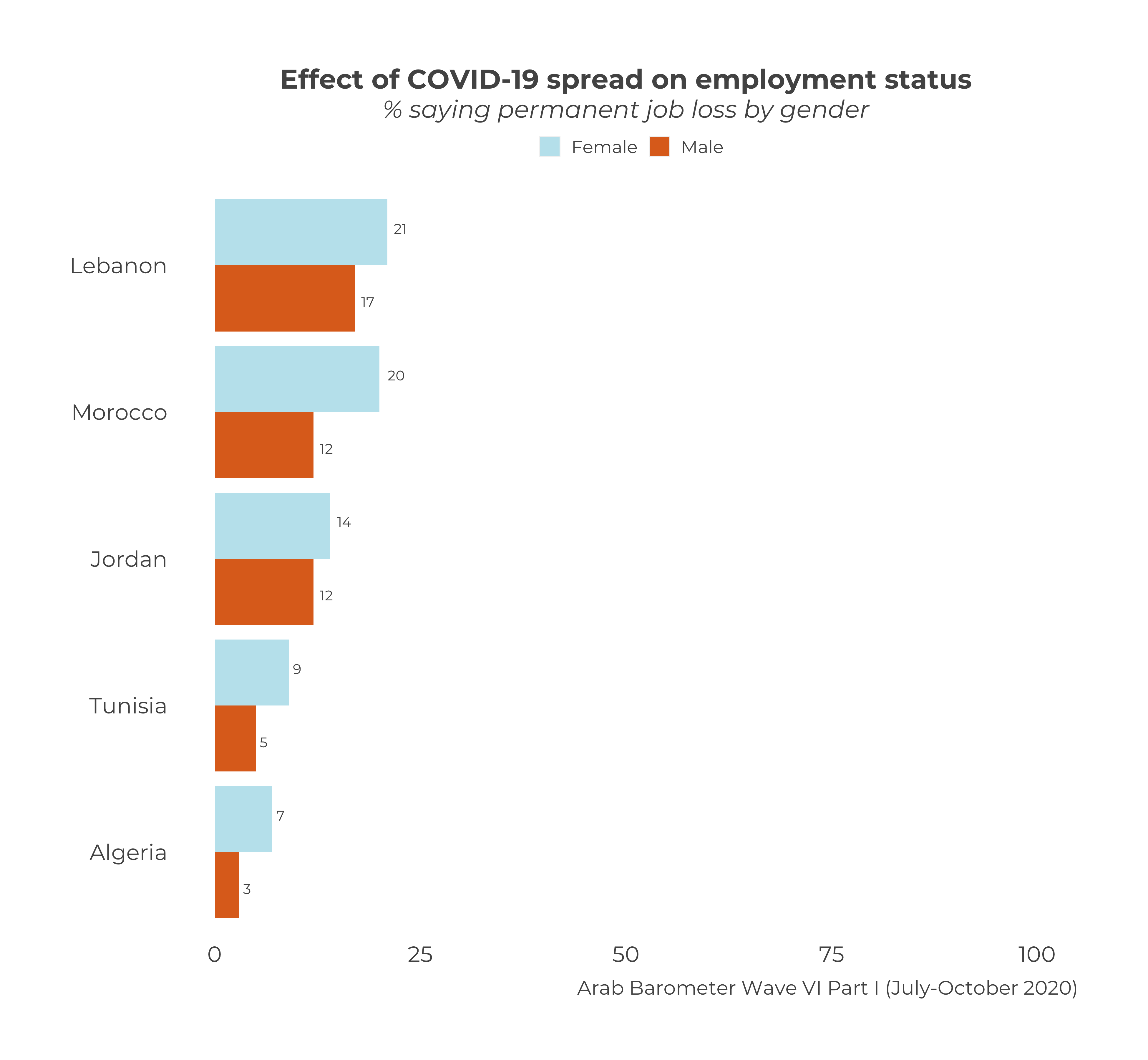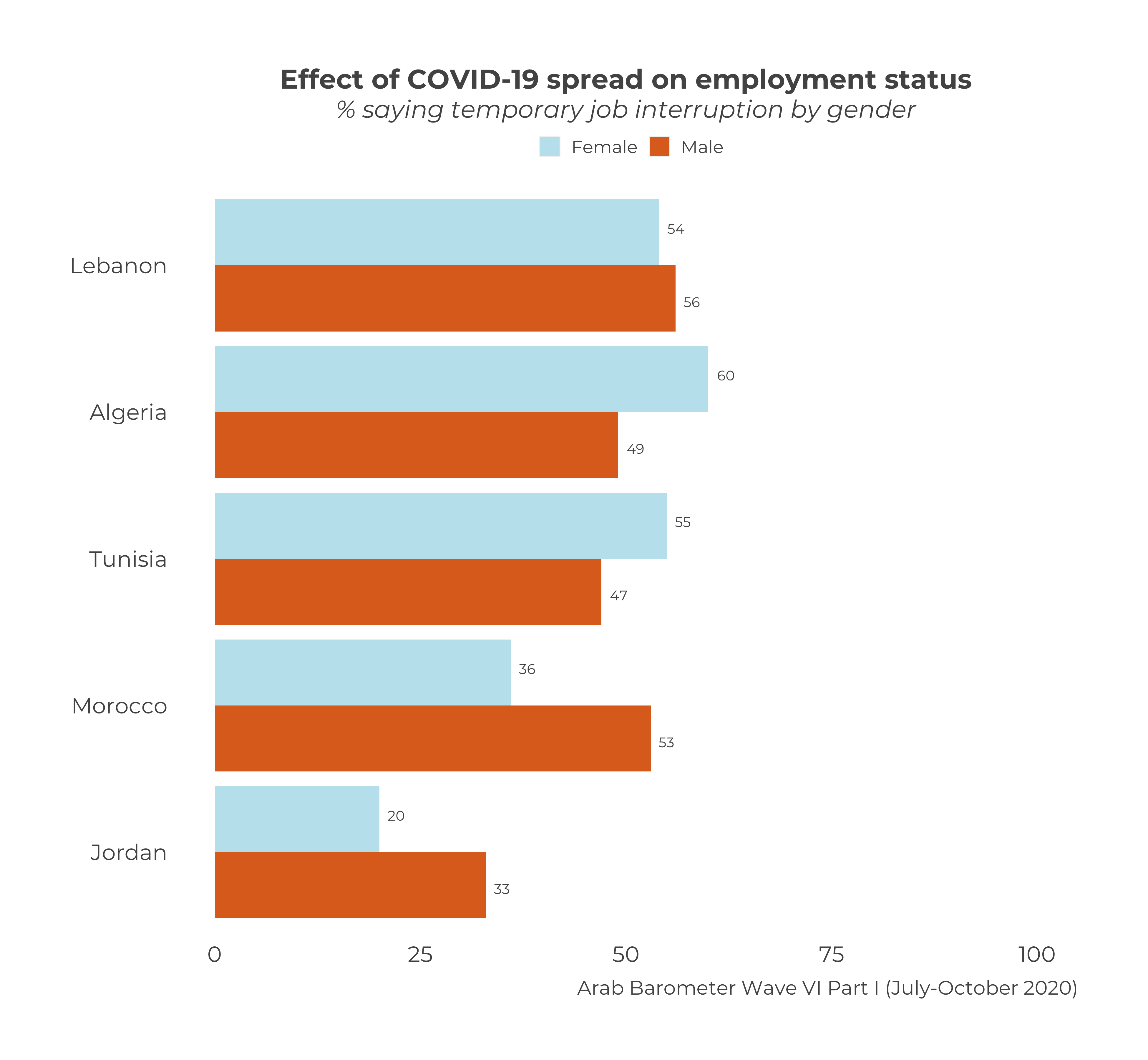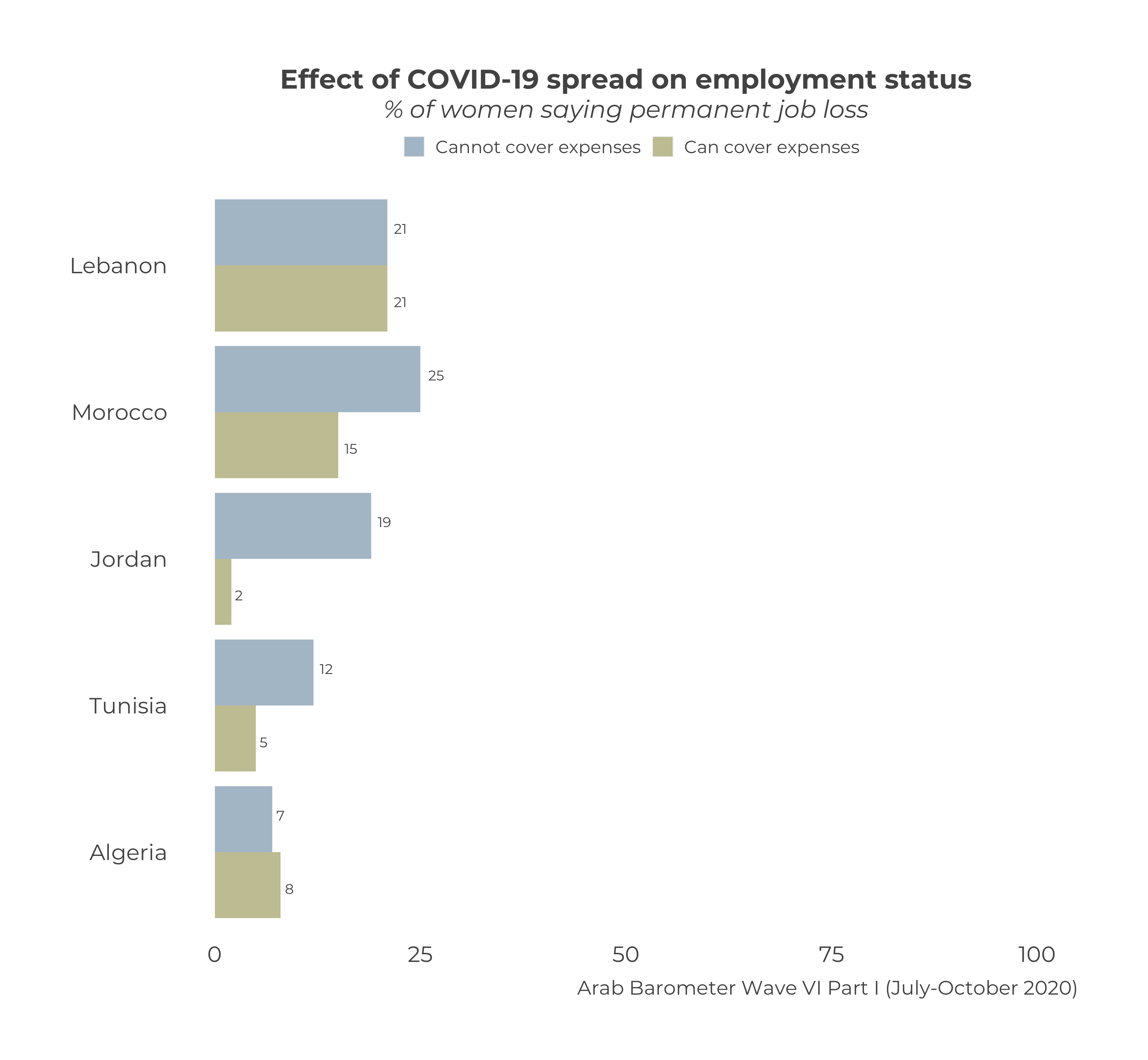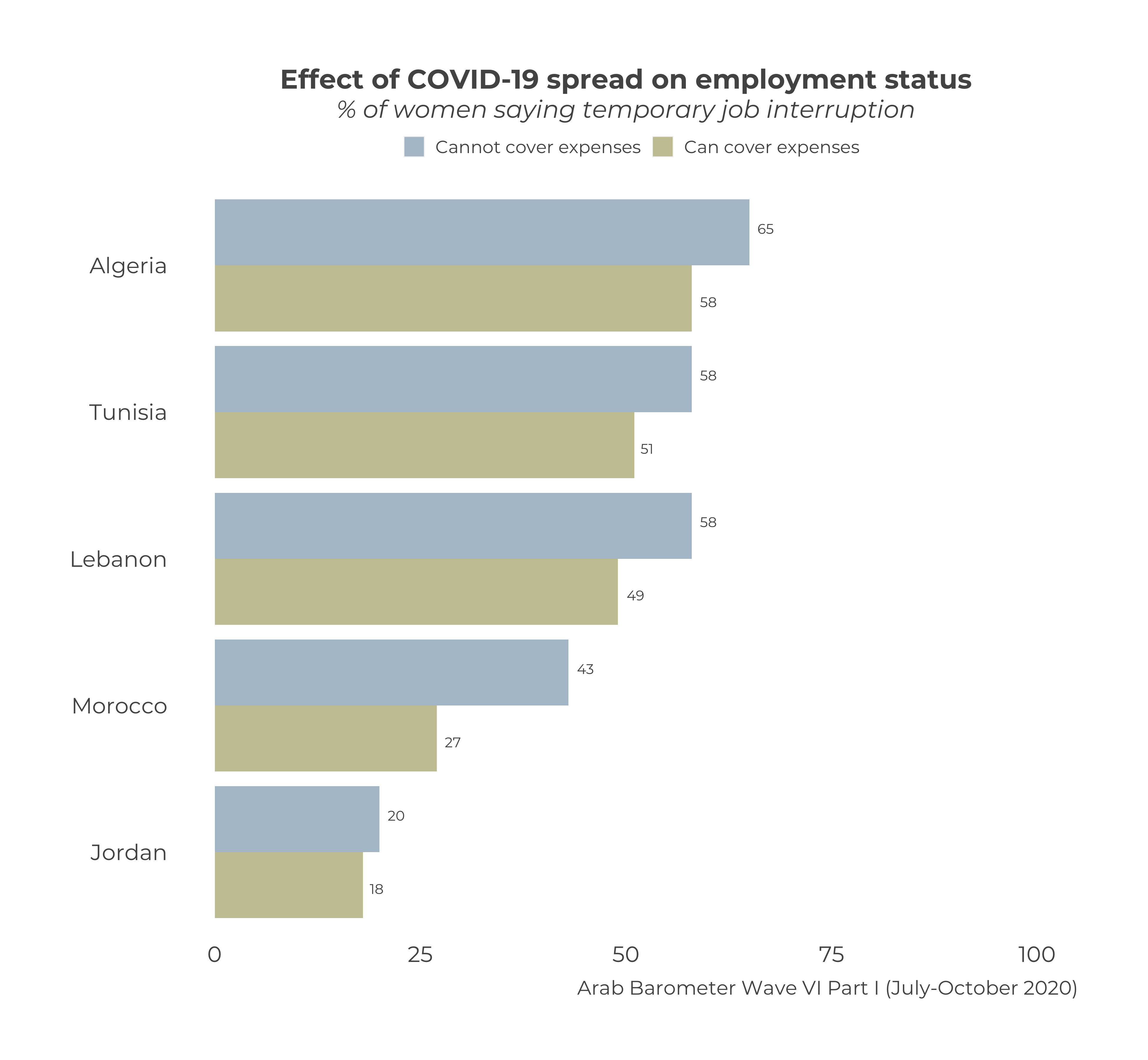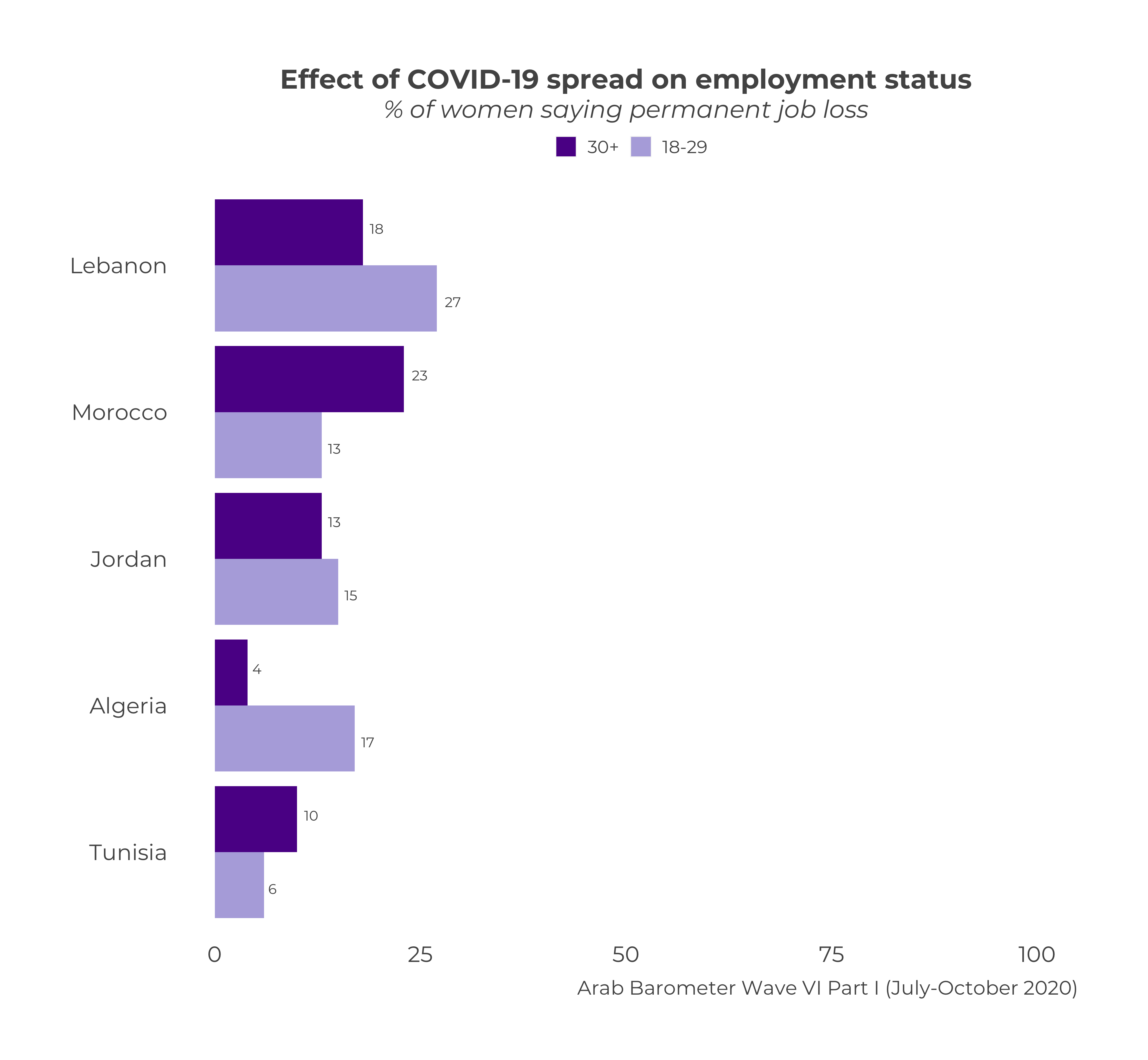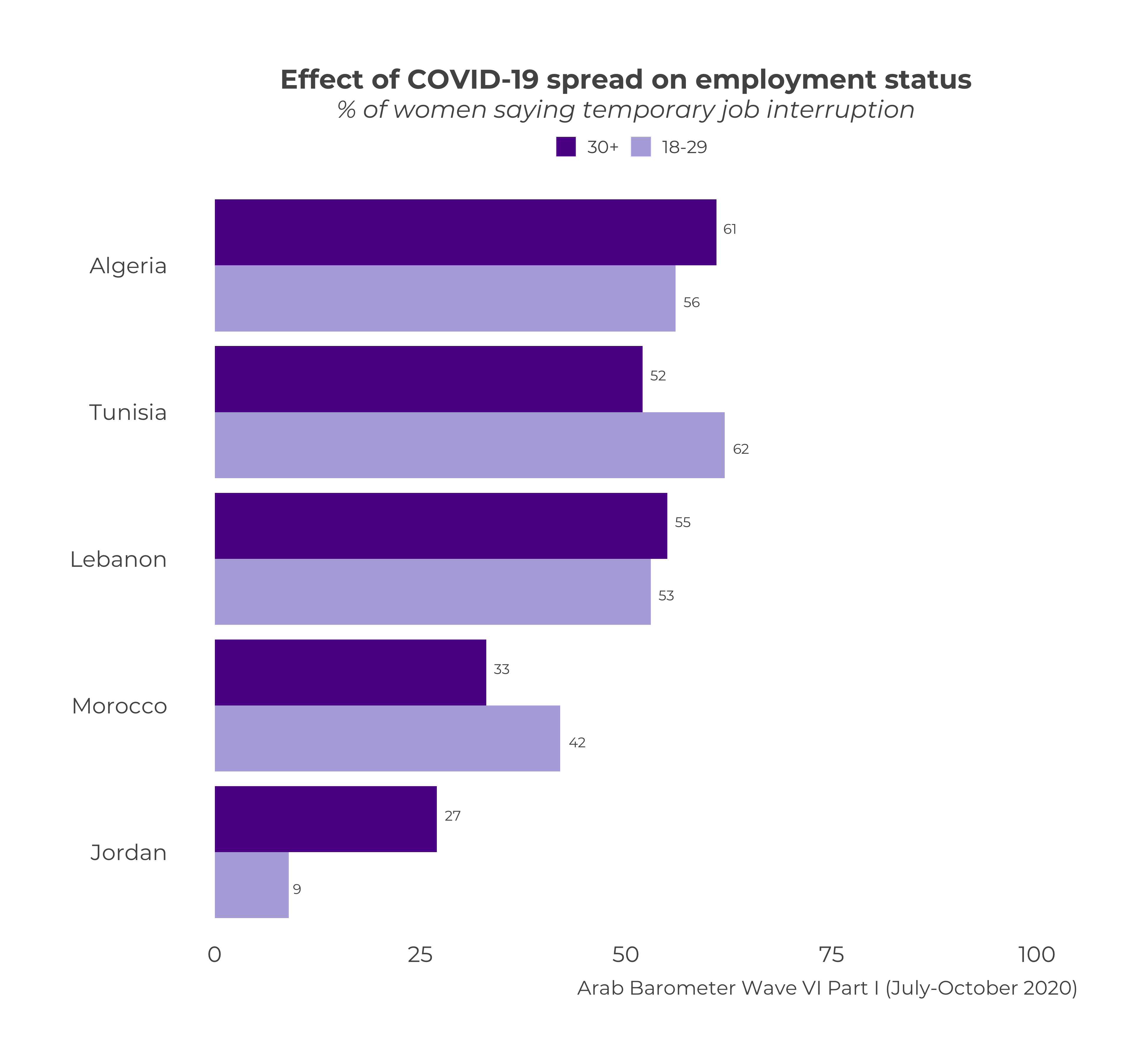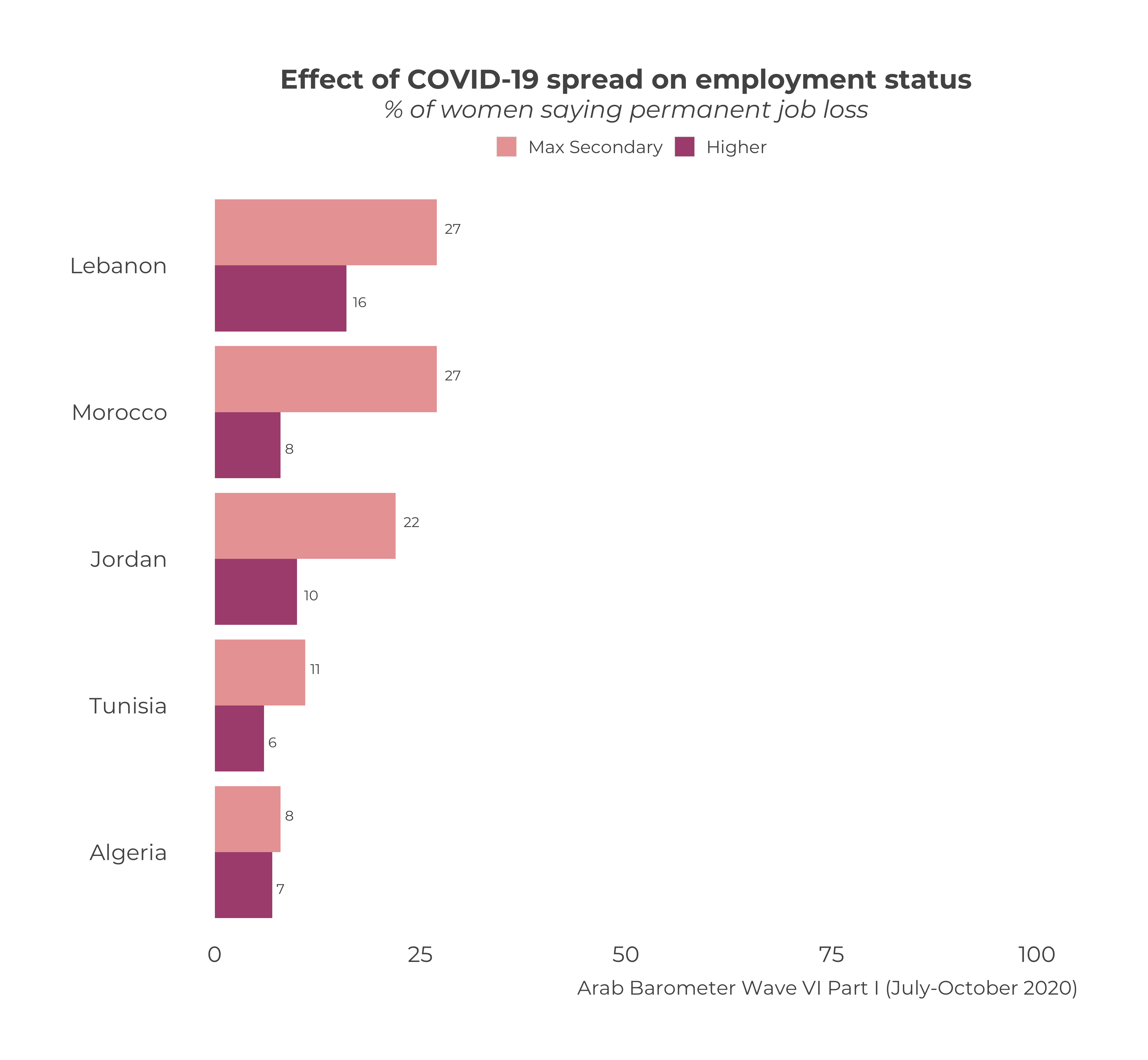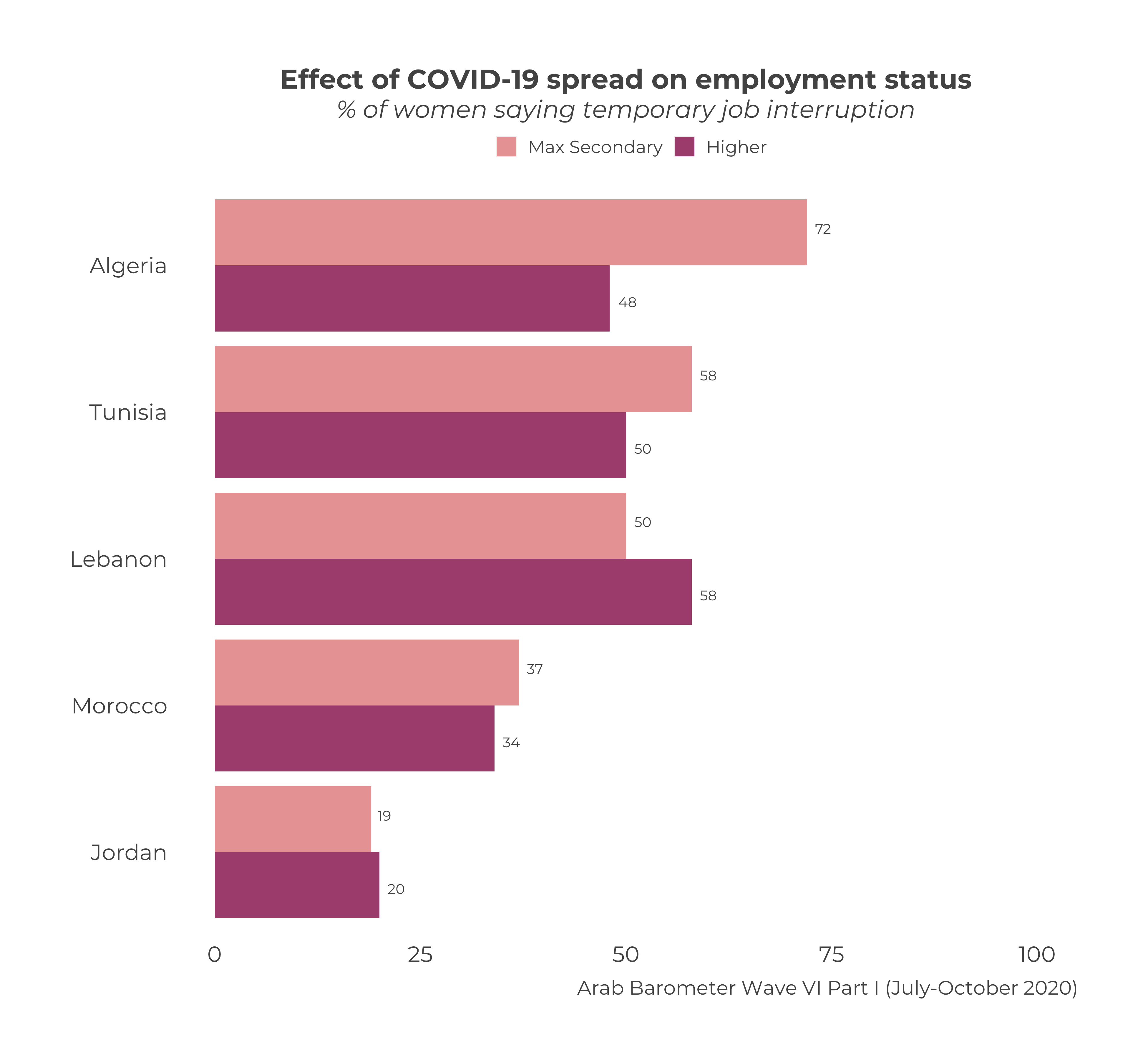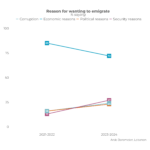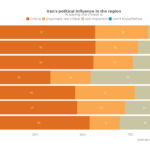COVID 19 is being perceived as a disruptor, an accelerator and an agent for innovation and advancement in various fields across the world. Yet, its impact has been a decelerator for women’s rights and gender equality globally. The UN Deputy Secretary-General Amina Mohammed warned that without immediate action, “the pandemic could set back women’s rights by decades”. And, the latest Arab Barometer public opinion survey of citizens across five countries in the Arab world confirm that Arab women have suffered more on economic and social dimensions. As such, responses and recovery plans should prioritize the support and protection of women in MENA. Otherwise, COVID’s impact could “unravel the limited progress that we have seen in terms of gender equality, women’s participation in the workforce and positive attitudes towards some women’s rights and their roles in society in the Arab world.”
COVID-19’s Economic Toll on Women in MENA
Prior to the COVID-19 pandemic, women’s labor force participation was disproportionately less (21%) than that of men in the Arab world (70%). Then, the pandemic’s economic impact further threatened Arab women’s livelihood and income security. Although Arab Barometer’s survey results show that, overall, relatively few citizens in the countries surveyed have lost a job due to COVID-19, many more have suffered a temporary interruption. Yet, in both cases, women bear a disproportional share of the job cuts: in Morocco the difference between women and men who permanently lost their jobs is eight percentage points while in Algeria and Tunisia it is four points. Similarly, women are more likely to have temporarily lost their jobs in Algeria (11-point difference compared to men) as well as Tunisia (8-point difference).
A closer look at the numbers reveal even deeper disparities. The COVID-19 economic downturn might have hit Arab women harder than men, but it is felt even harder by poorer women. Disparities based on age and level of education are also noticeable among women’s permanent and temporary disruption of work, although the magnitude varies across countries surveyed.
The Pandemic’s Impact on Arab Women’s Social Lives
COVID’s toll on Arab women isn’t only economic; the pandemic has dramatically affected the social lives of Arab women as well. The COVID-related health scare, the imposed lockdown, school closures, and the increased demands of the family and home, which are predominantly women’s responsibilities in MENA, have taken a heavy toll on Arab women. In four of the five countries surveyed, roughly a third of citizens say their biggest concern about COVID is the death of a family member, and citizens not following recommendations, according to Arab Barometer wave 6. Lebanon is the only exception where two-thirds worry about the death of a family member compared with only 5 percent who say citizens not following recommendations. However, women are experiencing a higher level of health anxiety and stress about family member’s health compared to men. In all five countries surveyed, more women than men say they are worried about illness or death of a family member, with the greatest percentage difference in Tunisia (19 points) and Jordan (18 points), while the difference in Lebanon is 9 points and in Algeria and Morocco it is 8 points, respectively.
The Pandemic’s outsized effect on Arab Women’s Safety
Moreover, the pandemic has had an outsized effect on Arab women’s safety and general wellbeing. The recent UNESCWA report alerts of the dramatic increase in levels of gender-based violence in the Arab world amid the Covid-19 crisis. For those Arab women trapped in violent relationships, the crisis has forced many to stay at home with their abuser making the likelihood of violent incidents more frequent. Arab Barometer’s results further reinforce this reality. The results reveal that citizens perceive that violence against women in their community has increased since the outbreak of the coronavirus. The highest rate of perceived increase in abuse of or violence against women is in Tunisia (63%), followed by Algeria and Morocco (41%, respectively), while the perceived increase of gender-based violence in Jordan is 27%, and in Lebanon is 20%.
In fact, as I mentioned in my previous blog on domestic violence during COVID-19 in MENA, women at risk in the Arab world who are seeking safety and security during the prolonged quarantine are presented with false choices. This is primarily a result of the Arab governments’ failure in prioritizing the support and protection of women in their recovery-response plans. However, the situation is even more alarming for women victims who have recently lost their jobs and are already living in or dangerously close to poverty line, as they become even more dependent on their abuser for financial security and shelter.
Arab Women Seeking Refuge in Prayer
During this time of uncertainty, it appears that Arab women are seeking refuge in prayer to help cope with all the COVID-related health, economic and social stressors. Overall many citizens across the countries surveyed are praying far more frequently than before the pandemic: 17% in Jordan, 21% in Tunisia, 33% in Morocco, and 38% in Algeria. Yet, Arab women increased their rate of prayer significantly more than Arab men; in Algeria the gap is 21 percentage points, while it is 20 points in Morocco, 16 points in Tunisia, and 13 points in Jordan.
Prioritizing Women’s Rights and Gender Equality
The economic and social effects of COVID have been disproportionally harder on Arab women than men. In fact, the dire outcomes that Arab women are facing during the COVID crisis are primarily influenced by the deeply ingrained gender inequalities, and the discriminatory social norms in MENA. Consequently, it is necessary that governments counter these effects by prioritizing the support and protection of women by focusing on the advancement of women’s rights and gender equality. Otherwise, Arab women will continue to live in vulnerable conditions, which has significant social and economic repercussions on their families and their societies at large.
